
0
+
Google Reviews

0
+
4.7 (2080 Ratings)
The AWS Certified Cloud Practitioner certification is an entry-level credential offered by Amazon Web Services (AWS) that provides individuals with a foundational understanding of AWS cloud services and basic cloud computing concepts. It is suitable for individuals at the beginning of their cloud journey and those in non-technical roles who want to gain a basic understanding of AWS.


Curriculum Designed by Experts
Define the aws cloud and its value proposition
– define the benefits of the aws cloud including:
– explain how the aws cloud allows users to focus on business value
Shifting technical resources to revenue-generating activities as opposed to managing infrastructure
Identify aspects of aws cloud economics
– define items that would be part of a total cost of ownership proposal
– identify which operations will reduce costs by moving to the cloud
Managed services (for example, rds, ecs, eks, dynamodb)
Explain the different cloud architecture design principles
– explain the design principles
Define the aws shared responsibility model
– recognize the elements of the shared responsibility model
– describe the customer’s responsibly on aws
– describe aws responsibilities
Define aws cloud security and compliance concepts
– identify where to find aws compliance information
– at a high level, describe how customers achieve compliance on aws
– describe who enables encryption on aws for a given service
– recognize there are services that will aid in auditing and reporting
– explain the concept of least privileged access
Identify aws access management capabilities
– understand the purpose of user and identity management
Protection of root accounts
Identify resources for security support
– recognize there are different network security capabilities
– recognize there is documentation and where to find it (for example, best practices, whitepapers, official documents)
– know that security checks are a component of aws trusted advisor
Define methods of deploying and operating in the aws cloud
– identify at a high level different ways of provisioning and operating in the aws cloud
– identify different types of cloud deployment models
– identify connectivity options
Public internet
Define the aws global infrastructure
– describe the relationships among regions, availability zones, and edge locations
– describe how to achieve high availability through the use of multiple availability zones
– describe when to consider the use of multiple aws regions
– describe at a high level the benefits of edge locations
Aws global accelerator
Identify the core aws services
– describe the categories of services on aws (compute, storage, network, database)
– identify aws compute services
– identify different aws storage services
– identify aws networking services
– identify different aws database services
Identify resources for technology support
– recognize there is documentation (best practices, whitepapers, aws knowledge center, forums, blogs)
– identify the various levels and scope of aws support
– recognize there is a partner network (marketplace, third-party) including independent software vendors and system integrators
– identify sources of aws technical assistance and knowledge including professional services, solution architects, training and certification, and the amazon partner network
– identify the benefits of using aws trusted advisor
Compare and contrast the various pricing models for aws (for example, on-demand instances, reserved instances, and spot instance pricing)
– identify scenarios/best fit for on-demand instance pricing
– identify scenarios/best fit for reserved-instance pricing
– identify scenarios/best fit for spot instance pricing
Recognize the various account structures in relation to aws billing and pricing
– recognize that consolidated billing is a feature of aws organizations
– identify how multiple accounts aid in allocating costs across departments
Identify resources available for billing support
– identify ways to get billing support and information
– identify where to find pricing information on aws services
– recognize that alarms/alerts exist
– identify how tags are used in cost allocation
The AWS Certified Cloud Practitioner Course Training equips you with in-demand skills vital for cloud computing roles. Learn key AWS services and cloud fundamentals, making you job-ready in the fast-growing tech industry. Enroll to gain a competitive edge with this sought-after certification.
Numerous employment options in cloud computing are made possible by the AWS Certified Cloud Practitioner Course Training. With this certification, you gain foundational AWS knowledge, making you a strong candidate for roles in IT, cloud support, and development. Enroll to boost your career with AWS expertise.
The AWS Certified Cloud Practitioner Course Training promotes cloud adoption by teaching essential AWS services and cloud fundamentals. With this certification, you can support businesses in migrating to the cloud, enhancing efficiency, scalability, and innovation. Enroll to lead cloud transformation efforts confidently.
The scalability and adaptability of AWS cloud solutions are highlighted in the AWS Certified Cloud Practitioner Course Training. Learn how to efficiently manage resources, scale on demand, and adapt to business needs. Enroll today to gain essential skills and leverage AWS's dynamic cloud environment for success.
The AWS Certified Cloud Practitioner Course Training teaches cost management strategies for AWS services. Discover how to save costs, track consumption, and optimize cloud expenditures. Enroll to gain skills that help businesses maximize value and minimize costs in their cloud environments efficiently.
The AWS Certified Cloud Practitioner Course Training equips you with vital security and compliance knowledge. Learn how AWS protects data and meets regulatory standards. Enroll today to gain expertise in securing cloud environments and ensuring compliance with industry regulations.
Radical Technologies is the leading IT certification institute in Pune, offering a wide range of globally recognized certifications across various domains. With expert trainers and comprehensive course materials, it ensures that students gain in-depth knowledge and hands-on experience to excel in their careers. The institute’s certification programs are tailored to meet industry standards, helping professionals enhance their skillsets and boost their career prospects. From cloud technologies to data science, Radical Technologies covers it all, empowering individuals to stay ahead in the ever-evolving tech landscape. Achieve your professional goals with certifications that matter.
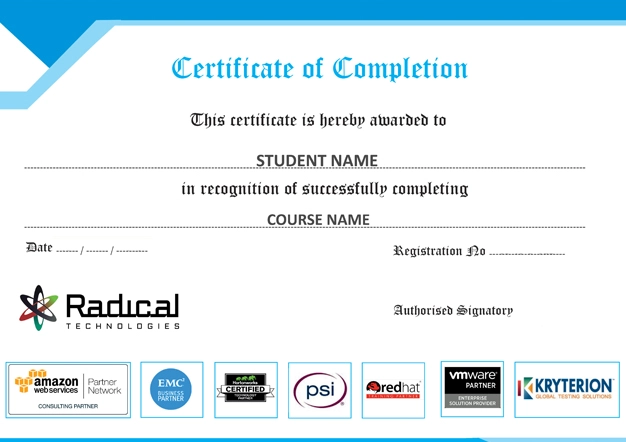


At Radical Technologies, we are committed to your success beyond the classroom. Our 100% Job Assistance program ensures that you are not only equipped with industry-relevant skills but also guided through the job placement process. With personalized resume building, interview preparation, and access to our extensive network of hiring partners, we help you take the next step confidently into your IT career. Join us and let your journey to a successful future begin with the right support.
At Radical Technologies, we ensure you’re ready to shine in any interview. Our comprehensive Interview Preparation program includes mock interviews, expert feedback, and tailored coaching sessions to build your confidence. Learn how to effectively communicate your skills, handle technical questions, and make a lasting impression on potential employers. With our guidance, you’ll walk into your interviews prepared and poised for success.
At Radical Technologies, we believe that a strong professional profile is key to standing out in the competitive IT industry. Our Profile Building services are designed to highlight your unique skills and experiences, crafting a resume and LinkedIn profile that resonate with employers. From tailored advice on showcasing your strengths to tips on optimizing your online presence, we provide the tools you need to make a lasting impression. Let us help you build a profile that opens doors to your dream career.

Infrastructure Provisioning
Implementing automated infrastructure provisioning and configuration management using Ansible. This may include setting up servers, networking devices, and other infrastructure components using playbooks and roles.

Applications Deployment
Automating the deployment and orchestration of applications across development, testing, and production environments. This could involve deploying web servers, databases. middleware, and other application components using Ansible

Continuous Integration
Integrating Ansible into CI/CD pipelines to automate software. build, test, and deployment processes. This may include automating the creation of build artifacts, running tests, and deploying applications to various environments.

Studying at Radical Technologies was a game-changer for me. The AWS Cloud Practitioner course provided me with a solid foundation in cloud computing concepts, and the hands-on labs were incredibly helpful.
I highly recommend Radical Technologies to anyone looking to kickstart their career in cloud technology. The instructors are knowledgeable, and the support staff goes above and beyond to ensure your success.
Enrolling in the AWS Cloud Practitioner course at Radical Technologies was one of the best decisions I've made. The comprehensive curriculum and practical exercises prepared me well for the certification exam.
Radical Technologies exceeded my expectations in every aspect. The instructors were passionate about teaching, and the course materials were top-notch. I'm grateful for the valuable skills I gained.
I can't thank Radical Technologies enough for helping me achieve my AWS Cloud Practitioner Certification. The training was comprehensive, and the hands-on labs provided invaluable real-world experience.
The AWS Cloud Practitioner course at Radical Technologies was a game-changer for my career. The instructors were supportive, and the course content was tailored to industry demands.
I'm grateful for the excellent training I received at Radical Technologies. The AWS Cloud Practitioner course equipped me with the knowledge and skills needed to excel in the cloud computing industry.
Radical Technologies provided me with the perfect learning environment to pursue my AWS Cloud Practitioner Certification. The instructors were patient, and the course materials were well-structured.
I highly recommend Radical Technologies to anyone looking to advance their career in cloud computing. The AWS Cloud Practitioner course was comprehensive, and the support team was exceptional.
Thanks to Radical Technologies, I passed my AWS Cloud Practitioner Certification exam on the first attempt. The course content was thorough, and the instructors were knowledgeable.
Enrolling in the AWS Cloud Practitioner course at Radical Technologies was a turning point in my career. The hands-on experience and expert guidance prepared me well for real-world challenges.
I'm thankful for the opportunity to study at Radical Technologies. The AWS Cloud Practitioner course was well-structured, and the instructors were passionate about helping students succeed.
Radical Technologies provided me with the necessary tools and resources to excel in the AWS Cloud Practitioner Certification exam. I'm proud to be a graduate of such an esteemed institute.
The AWS Cloud Practitioner course at Radical Technologies was an enriching experience. The instructors were engaging, and the course content was tailored to industry standards.
Studying at Radical Technologies was a transformative experience for me. The AWS Cloud Practitioner course equipped me with the skills and confidence to pursue my career goals.
I'm grateful for the personalized attention I received at Radical Technologies. The AWS Cloud Practitioner course was challenging yet rewarding, and I'm proud of my achievements.
Radical Technologies provided me with the support and guidance I needed to succeed in the AWS Cloud Practitioner Certification exam. I couldn't have done it without their expert instruction.
The instructors at Radical Technologies are second to none. Their passion for teaching and commitment to student success made all the difference in my AWS Cloud Practitioner journey.
I'm thrilled to have completed the AWS Cloud Practitioner course at Radical Technologies. The hands-on labs and practical exercises were instrumental in reinforcing my understanding of cloud computing.
Enrolling in the AWS Cloud Practitioner course at Radical Technologies was a wise investment in my future. The certification has opened up new opportunities for career growth and advancement.
Radical Technologies provided me with the knowledge and confidence to excel in the AWS Cloud Practitioner Certification exam. I'm proud to be a graduate of such a prestigious institute.
The instructors at Radical Technologies are experts in their field. Their guidance and mentorship helped me navigate the complexities of cloud computing and achieve my certification goals.
Studying at Radical Technologies was an unforgettable experience. The AWS Cloud Practitioner course was challenging yet fulfilling, and I'm grateful for the support I received along the way.
Radical Technologies equipped me with the skills and expertise needed to succeed in the AWS Cloud Practitioner Certification exam. I'm proud to have earned my certification through their guidance.
I can't thank Radical Technologies enough for helping me achieve my AWS Cloud Practitioner Certification. The comprehensive curriculum and expert instruction set me up for success in the cloud computing industry.








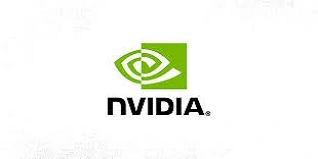
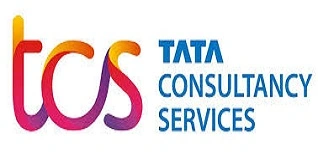




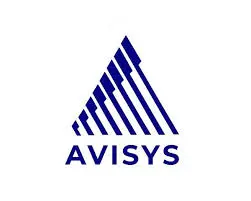





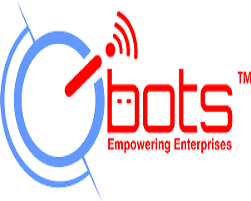
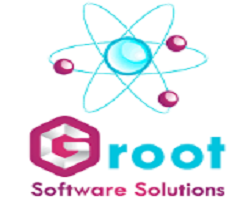



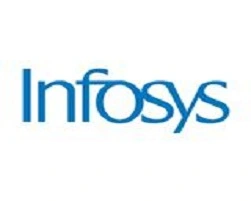
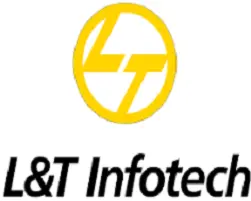
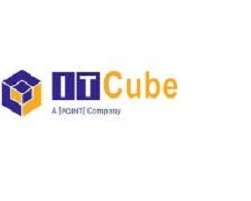

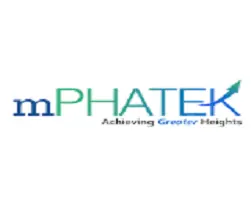
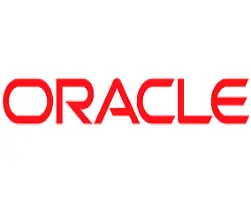






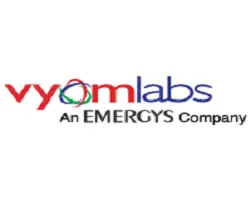
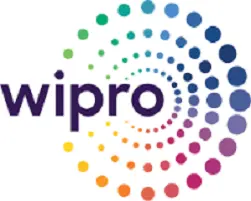
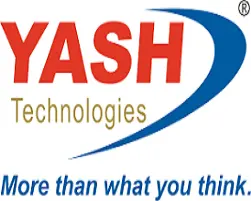
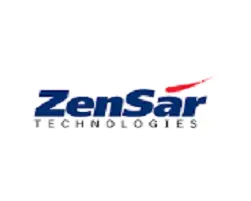
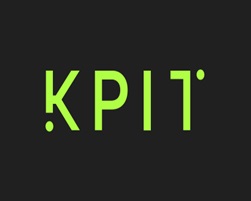

The AWS Cloud Practitioner Certification is an entry-level certification that validates your understanding of AWS Cloud platform and its basic architectural principles.
You can prepare for the exam by taking AWS Cloud Practitioner courses, studying AWS documentation, using practice tests, and hands-on experience with AWS services.
The syllabus covers cloud concepts, AWS services, security, pricing, and billing. It also includes an overview of AWS support and architectural best practices.
The cost of AWS Cloud Practitioner Certification exam is typically around $100 USD, but it may vary based on your location and currency.
Yes, Radical Technologies offers job placement assistance upon completion of the AWS Cloud Practitioner Certification course.
The duration of the course depends on the learning format and your pace. Typically, it can be completed within a few weeks to a couple of months.
Yes, AWS offers online proctored exams for the Cloud Practitioner Certification, allowing you to take the exam from the comfort of your home or office.
There are no specific prerequisites for the AWS Cloud Practitioner Certification. It is designed for individuals with no prior AWS experience.
No, AWS Cloud Practitioner Certification does not expire. However, it is recommended to stay updated with the latest advancements in AWS services and technologies.
Yes, AWS Cloud Practitioner Certification is an entry-level certification focusing on foundational AWS concepts, whereas AWS Certified Solutions Architect is an associate-level certification focusing on designing distributed systems on AWS.
Yes, you can retake the exam after a waiting period of 14 days. However, you need to pay the exam fee each time you retake the exam.
Look for training providers with experienced instructors, comprehensive course content, hands-on labs, and positive student reviews to find the best AWS Cloud Practitioner training.
AWS occasionally offers discounts or promotions for certification exams, so it’s worth checking their website or subscribing to their newsletter for updates.
AWS typically does not offer refunds for certification exams. However, you may be able to reschedule the exam without additional fees depending on the circumstances.
The passing score for the AWS Cloud Practitioner Certification exam is not publicly disclosed. AWS uses a scaled scoring system based on the difficulty of the questions.
Ambegaon Budruk | Aundh | Baner | Bavdhan Khurd | Bavdhan Budruk | Balewadi | Shivajinagar | Bibvewadi | Bhugaon | Bhukum | Dhankawadi | Dhanori | Dhayari | Erandwane | Fursungi | Ghorpadi | Hadapsar | Hingne Khurd | Karve Nagar | Kalas | Katraj | Khadki | Kharadi | Kondhwa | Koregaon Park | Kothrud | Lohagaon | Manjri | Markal | Mohammed Wadi | Mundhwa | Nanded | Parvati (Parvati Hill) | Panmala | Pashan | Pirangut | Shivane | Sus | Undri | Vishrantwadi | Vitthalwadi | Vadgaon Khurd | Vadgaon Budruk | Vadgaon Sheri | Wagholi | Wanwadi | Warje | Yerwada | Akurdi | Bhosari | Chakan | Charholi Budruk | Chikhli | Chimbali | Chinchwad | Dapodi | Dehu Road | Dighi | Dudulgaon | Hinjawadi | Kalewadi | Kasarwadi | Maan | Moshi | Phugewadi | Pimple Gurav | Pimple Nilakh | Pimple Saudagar | Pimpri | Ravet | Rahatani | Sangvi | Talawade | Tathawade | Thergaon | Wakad
I had an amazing experience with this service. The team was incredibly supportive and attentive to my needs. The quality of the work exceeded my expectations. I would highly recommend this to anyone looking for reliable and professional service."
I had an amazing experience with this service. The team was incredibly supportive and attentive to my needs. The quality of the work exceeded my expectations. I would highly recommend this to anyone looking for reliable and professional service."
I had an amazing experience with this service. The team was incredibly supportive and attentive to my needs. The quality of the work exceeded my expectations. I would highly recommend this to anyone looking for reliable and professional service."
I had an amazing experience with this service. The team was incredibly supportive and attentive to my needs. The quality of the work exceeded my expectations. I would highly recommend this to anyone looking for reliable and professional service."
I had an amazing experience with this service. The team was incredibly supportive and attentive to my needs. The quality of the work exceeded my expectations. I would highly recommend this to anyone looking for reliable and professional service."
The AWS Certified Cloud Practitioner Certification is an entry-level credential that validates your knowledge and understanding of the Amazon Web Services (AWS) Cloud. Designed for individuals seeking to demonstrate a foundational comprehension of cloud services, this certification is ideal for both IT professionals and those from non-technical backgrounds looking to enhance their cloud literacy.
The AWS Certified Cloud Practitioner Certification provides an in-depth understanding of AWS Cloud fundamentals, including its core services, pricing models, billing mechanisms, security protocols, and global infrastructure. This certification serves as a stepping stone for those aspiring to build a career in cloud computing, enabling candidates to grasp the essential concepts without requiring deep technical expertise.
The AWS Certified Cloud Practitioner Certification ensures that candidates:
This certification is ideal for:
Upon completing this certification, individuals will be equipped with:
To successfully earn this certification, candidates should:
After completing the AWS Certified Cloud Practitioner certification, many individuals choose to pursue more specialized certifications, such as:
The AWS Certified Cloud Practitioner Certification has broad applications across various industries and job roles, thanks to its foundational focus on cloud services and the AWS platform. It serves as a valuable credential for professionals in both technical and non-technical fields, enabling them to better understand cloud technologies and make informed decisions about cloud adoption, strategy, and operations.
Key Applications of AWS Certified Cloud Practitioner Certification:
1. Cloud Adoption and Migration Projects
Organizations migrating their infrastructure to the cloud often involve cross-functional teams, including IT, project management, and business leadership. The AWS Certified Cloud Practitioner Certification equips professionals with a foundational understanding of AWS, enabling them to:
Support cloud migration strategies by contributing to the planning and execution phases.
Assess the benefits of AWS services and how they align with business needs.
Communicate effectively with technical teams during the transition process.
2. Improved Collaboration Between Teams
The certification enables non-technical professionals, such as sales, marketing, HR, and finance personnel, to understand cloud concepts and AWS-specific terminology. This knowledge fosters better collaboration across departments, as team members can:
Contribute to discussions about cloud strategy, ensuring their business requirements are met.
Understand the capabilities and limitations of cloud-based solutions to align with organizational goals.
Bridge the communication gap between technical and non-technical teams, facilitating smoother project execution.
3. Cost Optimization and Financial Management
One of the core concepts in the AWS Certified Cloud Practitioner Certification is understanding AWS pricing models and cost optimization strategies. This is highly relevant for finance teams, procurement officers, and business leaders tasked with managing cloud expenses. With this certification, professionals can:
Analyze AWS usage patterns and identify opportunities for cost reduction through rightsizing or efficient resource allocation.
Utilize AWS tools such as the Cost Explorer and Pricing Calculator to forecast cloud expenses and manage budgets effectively.
Make data-driven decisions on the ROI of cloud investments.
4. Sales and Marketing of Cloud-Based Solutions
For professionals in sales and marketing roles, especially those dealing with cloud services or technology products, understanding the AWS platform and its offerings is critical. The certification helps in:
Positioning AWS solutions effectively to customers, highlighting relevant services and benefits.
Tailoring marketing campaigns and strategies that resonate with clients’ needs by leveraging AWS’s broad suite of products.
Building credibility with clients by demonstrating cloud knowledge and the ability to explain AWS offerings clearly.
5. Customer Support and Service Management
Customer support teams that assist businesses using AWS Cloud benefit significantly from the AWS Certified Cloud Practitioner Certification. It enables them to:
Troubleshoot and resolve customer issues related to basic AWS services and billing.
Provide informed guidance on AWS service usage, support plans, and best practices.
Improve the overall customer experience by understanding the AWS ecosystem and how it applies to various customer scenarios.
6. Product and Project Management
Project managers and product leads who are responsible for overseeing AWS-related projects need to have a clear understanding of the cloud environment. This certification helps them:
Manage cloud-based product development projects, ensuring alignment with business objectives and technical feasibility.
Make informed decisions when selecting AWS services to integrate into products or solutions.
Facilitate seamless communication with cloud engineers and architects during the project lifecycle.
7. Security and Compliance Awareness
For professionals involved in compliance, legal, and risk management, understanding the shared responsibility model and AWS’s security features is crucial. The certification allows them to:
Ensure that cloud deployments meet the required security and regulatory standards.
Work closely with IT and security teams to design and implement compliant cloud environments.
Advocate for the use of secure AWS services and configurations, mitigating risks associated with cloud operations.
8. Pathway to Advanced AWS Certifications
The AWS Certified Cloud Practitioner Certification serves as a foundational stepping stone for professionals planning to pursue more advanced AWS certifications. It provides the necessary knowledge base for:
AWS Certified Solutions Architect: Focusing on designing systems on AWS that meet specific business and technical requirements.
AWS Certified Developer: For those interested in building and deploying applications on the AWS platform.
AWS Certified SysOps Administrator: Aimed at those involved in managing, monitoring, and optimizing AWS workloads. Gaining the Cloud Practitioner certification first helps ease the transition into these more technical and specialized certifications.
9. Cloud Strategy and Decision-Making
Business leaders, executives, and consultants play a pivotal role in shaping cloud strategies for their organizations. The AWS Certified Cloud Practitioner Certification provides them with:
A solid understanding of the AWS cloud ecosystem, enabling them to make informed, strategic decisions about cloud adoption and growth.
The ability to evaluate cloud solutions and ensure they align with business goals, security needs, and compliance standards.
Insights into cloud trends and innovations, allowing them to stay ahead in the competitive landscape.
At Radical Technologies, located in Pune, we are dedicated to providing comprehensive training and certification programs tailored to individuals seeking expertise in AWS Cloud Computing. As a premier institute, we specialize in AWS Cloud Practitioner courses designed to equip students with the fundamental knowledge and skills necessary to excel in the dynamic field of cloud technology.
Our AWS Cloud Practitioner Certification course covers a wide range of topics, including cloud concepts, AWS services, security, pricing, and billing. With a meticulously crafted syllabus, we ensure that our students receive a well-rounded understanding of the AWS platform, empowering them to navigate its complexities with confidence.
At Radical Technologies, we understand the importance of hands-on experience in mastering AWS Cloud Computing. Therefore, our courses incorporate practical exercises, real-world case studies, and interactive labs to reinforce theoretical concepts and foster practical skills development. Our experienced instructors guide students through challenging scenarios, offering personalized support and insights garnered from years of industry experience.
In addition to rigorous training, we provide comprehensive support to our students throughout their learning journey. Our dedicated team offers job placement assistance, helping students leverage their AWS Cloud Practitioner Certification to secure rewarding career opportunities in leading organizations. We are committed to nurturing talent and fostering success in the ever-evolving landscape of cloud technology.
With a focus on excellence and innovation, Radical Technologies is your trusted partner in AWS Cloud Practitioner training. Whether you’re a beginner exploring the world of cloud computing or a seasoned professional looking to expand your skill set, we invite you to join us on a transformative learning experience. Invest in your future with Radical Technologies and embark on a journey towards success in the realm of AWS Cloud Computing.

(Our Team will call you to discuss the Fees)
